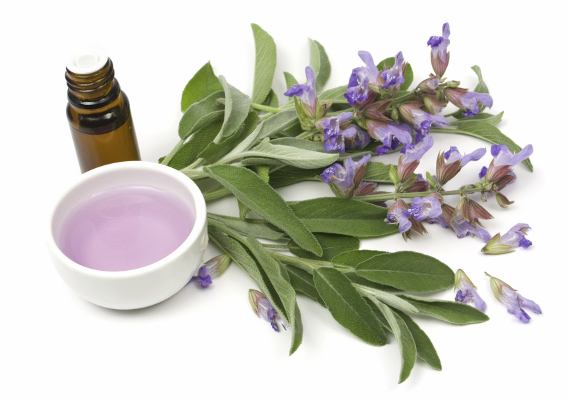The very word “sage” originates from the Latin salvere, which means healing, well-being. Sage has been known in medicine for thousands of years.
Treatment with Sage. Sage is a valuable source of essential oil, containing over 350 aromatic components, rivaling even vanilla.
Sage tea has the property of stimulating mental activity and enhancing the senses; such tea will be beneficial before exams and meetings, and before making important decisions. Sage tea contains antioxidants and enzymes, as well as plant hormones.

Inhaling sage essential oil is beneficial for the tone of capillaries and blood vessels, improving microcirculation in the cerebral blood vessels. Inhalations and aroma lamps with sage combat atherosclerosis, strengthen the walls of blood vessels, relieve headaches associated with vegetative-vascular dystonia, and help cope with the consequences of a stroke.
The use of sage in dentistry is known to everyone—its bactericidal properties are stronger than those of chamomile, oak bark, and myrtle. It has been shown to be much more effective than furacilin and chloramine. Gargles with sage infusion treat stomatitis and periodontal disease and effectively deal with unpleasant odors.
Ancient Roman doctors treated infertility through prolonged abstinence and drinking sage tea. This makes sense, as the composition of sage contains provitamins of the B group and PP factors, which act as estrogen. Therefore, sage normalizes the menstrual cycle and can gently stop lactation if necessary.
Douching with sage is effective for thrush and vaginitis—the sage infusion is appropriate for this.
Sage tea and inhalations are very helpful for colds and flu, bronchitis, asthma, and tuberculosis due to their bactericidal and immune-modulating properties.
Another significant property of sage is its ability to treat colitis, flatulence, and improve liver and gallbladder function.
Washing with sage is very beneficial for porous oily skin with inflammatory elements.
Externally, sage is used to treat ulcers, purulent wounds, frostbite, and burns in the form of compresses. It alleviates pain in cases of gout. Sage effectively alleviates pain associated with arthritis, osteochondrosis, flat feet, and myositis—in these instances, rubbing with sage oil is recommended.
The scent of sage essential oil combats stress and fatigue, strengthens the nerves, and can even treat clinical depression. It disinfects the air and deodorizes it.
Because sage stimulates hormone production, it should not be used during pregnancy, and it is not advisable to use it before sleep, as it enhances mental activity.



